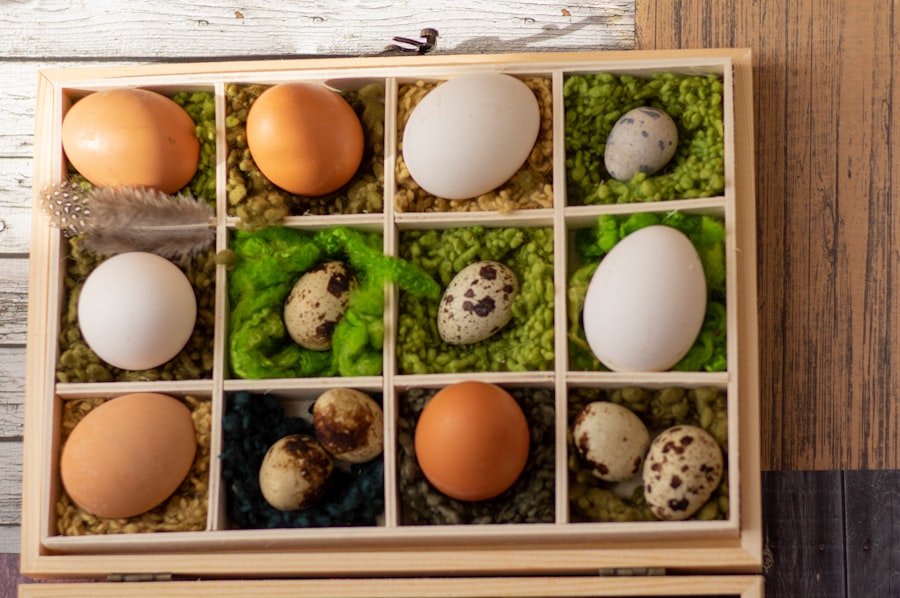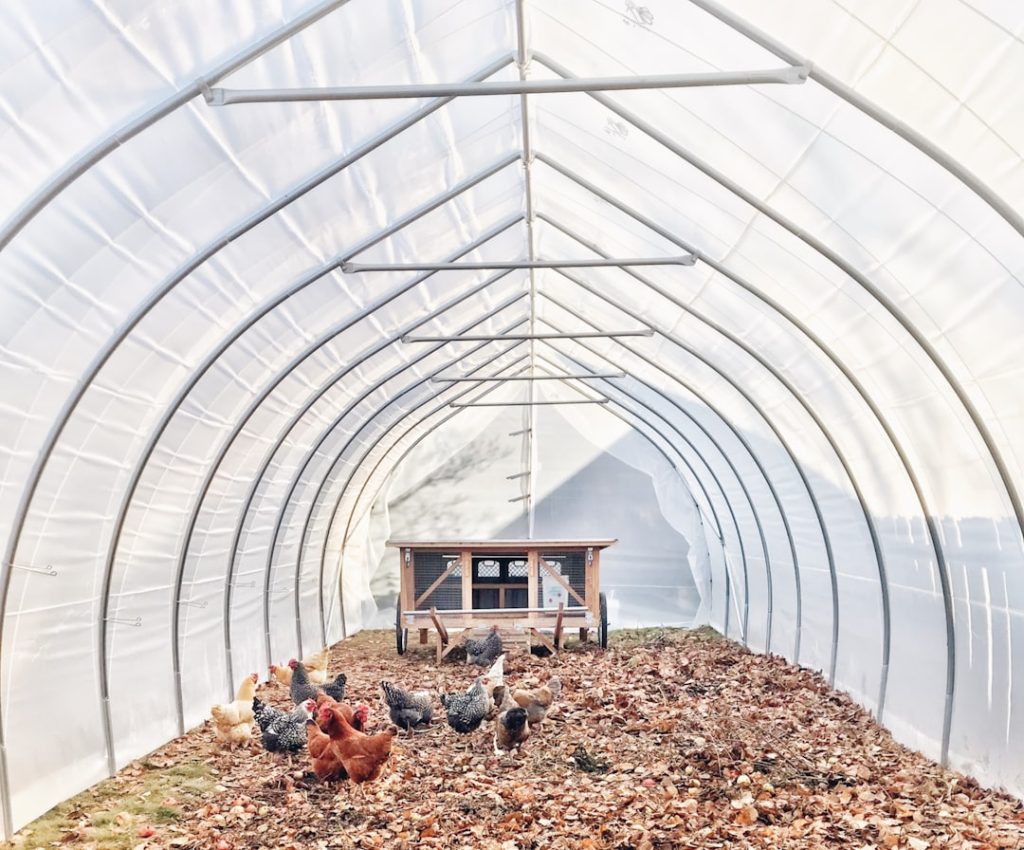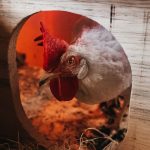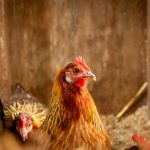Chickens are domesticated birds that serve multiple purposes in human society and ecosystems. As a primary source of protein, chickens provide both eggs and meat for human consumption. Their widespread domestication has made them one of the most common livestock animals globally.
In agricultural settings, chickens contribute to soil health through their natural scratching and pecking behaviors, which aerate and fertilize the ground. They also act as natural pest controllers by consuming insects and other small pests that can damage crops and gardens. Historically and culturally, chickens have played significant roles in various societies for thousands of years.
In some cultures, they are considered sacred and are used in religious ceremonies and rituals. Chickens are also kept as pets, providing companionship to many people. The ecological impact of chickens extends beyond their immediate environment.
Their behaviors help maintain ecosystem balance and contribute to overall environmental health. Protecting chicken populations is crucial for ensuring sustainable food sources and preserving natural ecological equilibrium. Given their importance in food production, pest control, cultural significance, and environmental impact, it is essential to safeguard the well-being of chickens.
This protection benefits both human society and the broader environment.
Table of Contents
- 1 The Threats Facing Chickens
- 2 The Impact of the Petition
- 3 The Benefits of Protecting Chickens
- 4 How You Can Help
- 5 Success Stories
- 6 The Future of Chicken Protection
- 7 FAQs
- 7.1 What is the purpose of the petition “Keep Our Chickens Protected”?
- 7.2 Who can sign the petition “Keep Our Chickens Protected”?
- 7.3 What are the goals of the petition “Keep Our Chickens Protected”?
- 7.4 How can signing the petition “Keep Our Chickens Protected” make a difference?
- 7.5 What can be achieved by reaching the target number of signatures for the petition “Keep Our Chickens Protected”?
Key Takeaways
- Chickens play a crucial role in our food system and economy, making their protection important for sustainable agriculture and food security.
- Threats facing chickens include factory farming, inhumane treatment, and lack of legal protection, leading to suffering and exploitation.
- Petitions and advocacy efforts have led to positive changes in chicken welfare, highlighting the impact of public support and activism.
- Protecting chickens can lead to improved animal welfare, healthier food products, and a more sustainable and ethical food system.
- Individuals can help protect chickens by supporting legislation, choosing ethically sourced products, and spreading awareness about chicken welfare issues.
The Threats Facing Chickens
Intensive Farming Practices
One of the most significant threats to chickens is the intensive farming practices prevalent in the poultry industry. Chickens raised in factory farms are often subjected to overcrowded and unsanitary conditions, which can lead to stress, disease, and suffering. Additionally, these chickens are often treated with antibiotics and hormones to promote rapid growth, which can have negative effects on their health and well-being.
Predation and Domestic Pets
Another major threat to chickens is predation by wild animals and domestic pets. Chickens are vulnerable to attacks from predators such as foxes, raccoons, and birds of prey, which can result in injury or death. Domestic pets such as dogs and cats can also pose a threat to chickens if they are not properly supervised or contained.
Exploitation for Feathers
Furthermore, chickens are at risk of being exploited for their feathers, which are used in various industries such as fashion and crafts. The demand for feathers has led to the mistreatment and exploitation of chickens, as they are often plucked or molted in inhumane ways.
Overall, the threats facing chickens are numerous and varied, and it is essential to take action to protect these animals from harm.
The Impact of the Petition

Petitions aimed at protecting chickens have had a significant impact on raising awareness about the issues facing these animals. By gathering signatures and support from concerned individuals, petitions have been successful in bringing attention to the mistreatment of chickens in various industries. This increased awareness has led to changes in legislation and regulations aimed at improving the welfare of chickens in farming practices.
In addition to raising awareness, petitions have also been successful in pressuring companies to adopt more humane practices in their treatment of chickens. Many companies have responded to public pressure by committing to sourcing eggs and meat from suppliers that adhere to higher animal welfare standards. This has led to improvements in the living conditions and treatment of chickens in the poultry industry.
Furthermore, petitions have played a crucial role in advocating for the protection of chickens from exploitation for their feathers. By raising awareness about the mistreatment of chickens in the feather industry, petitions have helped to bring attention to this issue and advocate for more ethical practices. Overall, petitions have had a significant impact on raising awareness about the mistreatment of chickens and advocating for their protection from harm.
The Benefits of Protecting Chickens
Protecting chickens has numerous benefits for both humans and the environment. By ensuring the welfare of chickens, we can promote sustainable food production practices that prioritize animal welfare and environmental sustainability. Chickens that are raised in humane conditions are healthier and produce higher quality eggs and meat, which benefits consumers and supports ethical farming practices.
Furthermore, protecting chickens from harm helps to maintain the balance of ecosystems by preserving their natural behaviors that contribute to soil health and pest control. Chickens play a crucial role in maintaining the health of the soil through their scratching and pecking behavior, which helps to aerate and fertilize the ground. Additionally, their consumption of insects and pests helps to protect crops and gardens from damage, reducing the need for harmful chemical pesticides.
Protecting chickens also has cultural and social benefits, as it promotes respect for animals and supports traditions and customs that involve chickens. By valuing the well-being of chickens, we can foster a more compassionate society that prioritizes ethical treatment of animals. Overall, protecting chickens has numerous benefits for both humans and the environment, and it is essential to take action to ensure their well-being.
How You Can Help
There are several ways that individuals can help protect chickens from harm. One of the most effective ways to make a difference is by supporting organizations and initiatives that advocate for the welfare of chickens. By donating to or volunteering with these organizations, individuals can contribute to efforts aimed at raising awareness about the mistreatment of chickens and advocating for more ethical farming practices.
Another way to help protect chickens is by making informed consumer choices. By purchasing eggs and meat from suppliers that adhere to higher animal welfare standards, individuals can support ethical farming practices and encourage companies to prioritize the well-being of chickens. Additionally, individuals can take action by signing petitions and contacting lawmakers to advocate for stronger animal welfare regulations.
By voicing their concerns about the mistreatment of chickens, individuals can contribute to efforts aimed at improving the living conditions and treatment of these animals. Overall, there are numerous ways that individuals can help protect chickens from harm, and it is essential for people to take action to ensure the well-being of these animals.
Success Stories

Improving Living Conditions for Hens
As a result of this commitment, many companies have made significant changes to their sourcing practices, leading to improvements in the living conditions of millions of hens.
Legislative Victories
Another success story is the passage of legislation aimed at improving animal welfare standards in the poultry industry. In response to public pressure and advocacy efforts, several states have passed laws that require larger cages for egg-laying hens and prohibit certain cruel farming practices. These legislative victories have had a significant impact on improving the welfare of chickens in farming operations.
Raising Awareness in the Feather Industry
Furthermore, there have been successful campaigns aimed at raising awareness about the mistreatment of chickens in the feather industry. By advocating for more ethical practices in feather production, these campaigns have brought attention to this issue and pressured companies to adopt more humane sourcing practices.
Overall, these success stories demonstrate the impact of efforts aimed at protecting chickens and highlight the positive changes that can result from public advocacy.
The Future of Chicken Protection
The future of chicken protection looks promising as efforts continue to raise awareness about the mistreatment of these animals and advocate for more ethical farming practices. With increasing public awareness about animal welfare issues, there is growing support for initiatives aimed at improving the living conditions and treatment of chickens in various industries. One promising development is the growing trend towards sustainable and ethical food production practices.
Many consumers are seeking out products that prioritize animal welfare and environmental sustainability, leading to an increased demand for ethically sourced eggs and meat. This trend has led to changes in industry practices as companies respond to consumer preferences for more humane farming methods. Additionally, there is increasing support for legislative measures aimed at improving animal welfare standards in the poultry industry.
As public awareness about the mistreatment of chickens grows, there is growing pressure on lawmakers to enact stronger regulations that protect these animals from harm. Overall, the future of chicken protection looks promising as efforts continue to raise awareness about animal welfare issues and advocate for more ethical treatment of these animals. With continued public support and advocacy efforts, there is hope for positive changes that will improve the well-being of chickens in various industries.
If you’re passionate about keeping chickens protected, you may also be interested in learning more about the best practices for housing and caring for your feathered friends. Check out this informative article on renting a chicken coop to provide a safe and comfortable environment for your chickens. This resource also offers valuable tips on maintaining the floor of a chicken coop and choosing the best location for your chicken coop. By implementing these practices, you can ensure that your chickens are not only protected but also thriving in their living space.
FAQs
What is the purpose of the petition “Keep Our Chickens Protected”?
The purpose of the petition “Keep Our Chickens Protected” is to advocate for the protection of chickens from harm and mistreatment. It aims to raise awareness about the welfare of chickens and to urge authorities to enforce laws and regulations that ensure their well-being.
Who can sign the petition “Keep Our Chickens Protected”?
Anyone who supports the protection of chickens and believes in their welfare can sign the petition “Keep Our Chickens Protected.” This includes individuals, organizations, and communities who are concerned about the treatment of chickens.
What are the goals of the petition “Keep Our Chickens Protected”?
The goals of the petition “Keep Our Chickens Protected” include advocating for the enforcement of laws and regulations that protect chickens from harm, raising awareness about the welfare of chickens, and urging authorities to take action to ensure the well-being of chickens.
How can signing the petition “Keep Our Chickens Protected” make a difference?
Signing the petition “Keep Our Chickens Protected” can make a difference by demonstrating public support for the protection of chickens. It can also help to raise awareness about the welfare of chickens and put pressure on authorities to take action to enforce laws and regulations that ensure their well-being.
What can be achieved by reaching the target number of signatures for the petition “Keep Our Chickens Protected”?
Reaching the target number of signatures for the petition “Keep Our Chickens Protected” can help to amplify the voices of those advocating for the protection of chickens. It can also increase the likelihood of authorities taking action to enforce laws and regulations that ensure the well-being of chickens.
Meet Walter, the feathered-friend fanatic of Florida! Nestled in the sunshine state, Walter struts through life with his feathered companions, clucking his way to happiness. With a coop that’s fancier than a five-star hotel, he’s the Don Juan of the chicken world. When he’s not teaching his hens to do the cha-cha, you’ll find him in a heated debate with his prized rooster, Sir Clucks-a-Lot. Walter’s poultry passion is no yolk; he’s the sunny-side-up guy you never knew you needed in your flock of friends!







